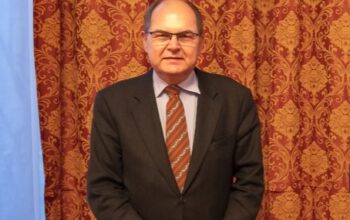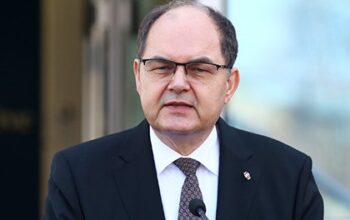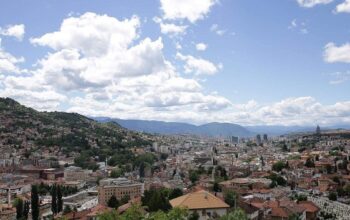As the next phase of the EU-sponsored Structured Dialogue on Justice approaches, BiH Dayton Project is highlighting the issue of judicial reform to clarify the issues under discussion and the positions of the parties involved in the process. The BiH Court and Prosecutor’s Office—the primary focus of judicial reform efforts—has been in the news lately for its handling of the so-called Dobrovoljačka Street Case, one of the relatively few cases the State Prosecutor has addressed pertaining to war crimes committed against Serbs. One of the prosecutors assigned to the case has attempted to dismiss it prematurely, while the High Representative—who ought to have nothing to do with the prosecution of such matters—has misrepresented the case in the media and tried to delegitimize the grievances of the RS government over the Prosecutor’s and Court’s treatment of the case.
On May 3, 1992, a Yugoslav National Army (JNA) convoy traveling under a promise of safe passage was attacked by Bosniak Territorial Defense Forces (TDF). The convoy was made up of some 400 JNA personnel, who were attempting to relocate from their barracks in downtown Sarajevo to the JNA’s base near the airport in order to forestall further violence in the capital. JNA General Kukanjac had reached an agreement with Bosnian president Izetbegovic and TDF commander Colonel Efendic—brokered and accepted by the commander of the United Nations forces in BiH, Major General Lewis MacKenzie of Canada—that the JNA personnel would be given safe passage during their evacuation. In exchange, they would release President Izetbegovic, who was being held by the JNA at their base by the Sarajevo Airport. Izetbegovic, Colonel Efendic, and General MacKenzie traveled with the convoy to guarantee its safety.
Despite the guarantee of safe passage, the convoy came under attack from TDF troops not long after leaving the barracks. According to General MacKenzie, TDF soldiers first blocked the road in the middle of the convoy, splitting the column of vehicles in half. The soldiers then began shooting into some of the vehicles, killing and wounding a number of JNA personnel. The TDF surrounded other vehicles and confiscated arms and materiel from the soldiers inside. TDF General Jovan Divjak reported that the TDF captured and removed from the convoy 15 JNA vehicles and 215 JNA soldiers, more than half the total number of soldiers in the convoy. The attack ended after negotiations between Izetbegovic and the TDF commanders on the scene, but the captured soldiers and property were not returned.
Under the “Rule of the Road” procedure established for prosecution of war crimes under the 1996 Rome Agreement, local authorities in BiH were required to submit files to the International Criminal Tribunal for the Former Yugoslavia (ICTY) before making any arrests in cases such as this one. The RS government submitted files on nine suspects in the Dobrovoljačka ambush to the ICTY in July 2002; however, no suspect from the ambush was ever tried by the ICTY. After the Rules of the Road procedure ended in 2004, the local courts were granted the discretion to proceed with any cases, such as the Dobrovoljačka Street Case, that were not tried by the ICTY.
The BiH Prosecutor’s Office has been investigating this case since 2005 but has not proceeded with any trials, even though sources within the Prosecutor’s Office indicate that investigators have found evidence of war crimes. Nevertheless, on January 17 of this year, Jude Romano, a foreign prosecutor within the BiH Prosecutor’s Office, decided unilaterally to terminate investigations. RS authorities have insisted that the case be reopened, and the RS Ministry of Interior has even provided additional evidence in the case to encourage the BiH Prosecutors to resume their investigation. In the meantime, the High Representative has made public statements attempting to delegitimize the request for a thorough and objective investigation into this matter.
The BiH Court’s perceived discrimination against Serbs was an impetus for the launching of the EU Structured Dialogue process. RS authorities have every right to question the actions of the State Court and Prosecutor, through the Structured Dialogue and by other means. It is not lawful for the High Representative to intervene in these processes, or to attempt to influence the decisions of the Court and Prosecutor’s Office. Judicial independence is a fundamental tenet of stable democracy. Nearly two decades after the events on which this case centers, BiH is still being denied a justice system free of political intervention, not because it is incapable of handling war crimes cases, but because the OHR continues to want to dictate their outcome.


